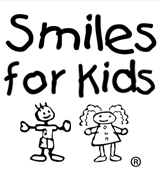The Most Precious Gift… Attention
One of the best ways we feel valued as human beings is when we truly feel like we are heard by others. That doesn’t mean someone just hears what we say and agrees until it’s their turn to talk; it’s when someone really listens and understands what we have to say. How often do you find yourself doing that with your loved ones, especially your children? Do you make an effort, each day, to sit down, look in their eyes, and have an actual conversation with them? Try these cool new ideas to help you actually get to know your child as a person—who they are, not what they do—so you can continue to appreciate their incredible depth and intelligence.
“The Most Precious Gift We Can Offer Anyone is Our Attention.” -Thich Nhat Hanh
Reflective Listening
Practice reflective listening. The main idea is to try to understand what your child is trying to communicate to you, then “reflect” the idea back to them to make sure it’s understood. This is great for children because you can make them feel heard (and figure out what they are really trying to say) instead of trying to form their ideas into what you think they should be.
Actively Listening to Your Child
Sit still and actively listen. If you interrupt or fidget, your child will gather that you’re not really interested in what they have to say. Make eye contact, nod your head, and say encouraging things to show that you’re paying attention (like “mmm,” “uh huh,” and, “go on”). When there’s a break in their speaking, try to sum up what they’ve said in your own words—this is the reflective part… and it’s very important! You will keep them opening up to you if you show them that you understand what they’re saying. Don’t push for information; just give them space to confide in you. Make sure you don’t criticize, which will show that you’re judging rather than listening or understanding.
Improving Listening Skills
Reflective listening goes a long way in satisfying your child’s need to be listened to and understood. It will help you build a stronger bond with them and it will teach them how to listen to others, including you! There’s nothing more important on any parent’s to-do list than building a connection with their little genius. Even if you set aside 15 minutes a day to look into your child’s eyes and reflectively listen to them, it can make the difference between knowing what they do and who they are!













